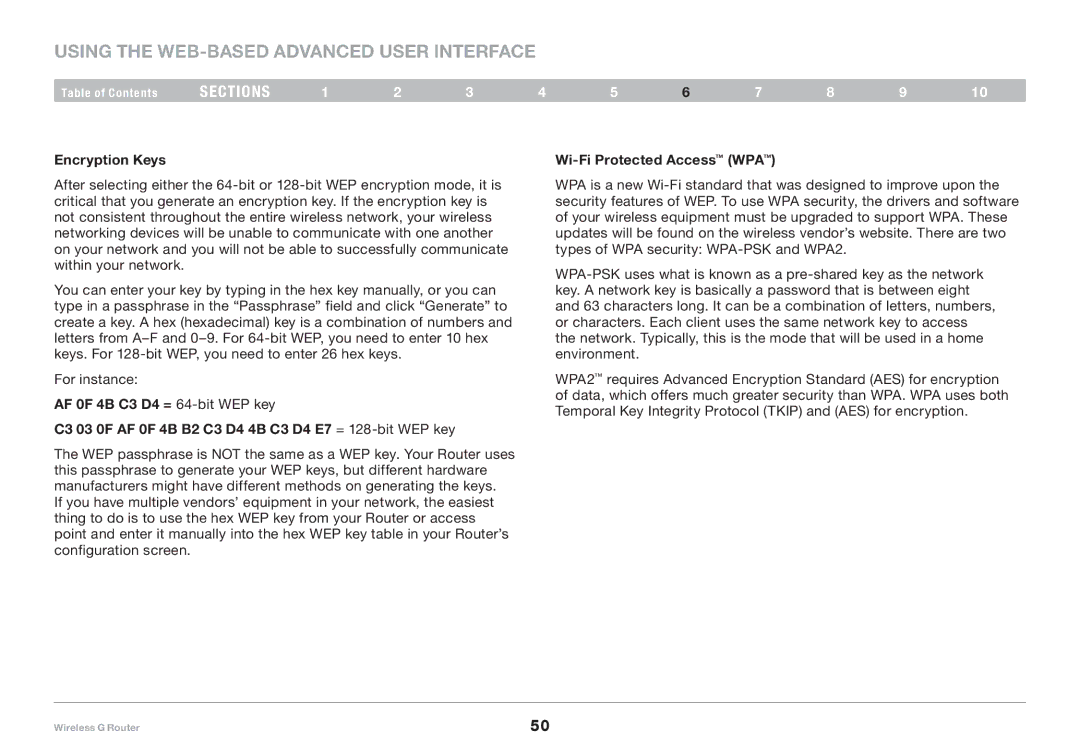Using the Web-Based Advanced User Interface
Table of Contents | sections | 1 | 2 | 3 | 4 | 5 | 6 | 7 | 8 | 9 | 10 |
Encryption Keys
After selecting either the
You can enter your key by typing in the hex key manually, or you can type in a passphrase in the “Passphrase” field and click “Generate” to create a key. A hex (hexadecimal) key is a combination of numbers and letters from
For instance:
AF 0F 4B C3 D4 =
C3 03 0F AF 0F 4B B2 C3 D4 4B C3 D4 E7 =
The WEP passphrase is NOT the same as a WEP key. Your Router uses this passphrase to generate your WEP keys, but different hardware manufacturers might have different methods on generating the keys.
If you have multiple vendors’ equipment in your network, the easiest thing to do is to use the hex WEP key from your Router or access point and enter it manually into the hex WEP key table in your Router’s configuration screen.
Wi-Fi Protected Access™ (WPA™)
WPA is a new
WPA2™ requires Advanced Encryption Standard (AES) for encryption of data, which offers much greater security than WPA. WPA uses both Temporal Key Integrity Protocol (TKIP) and (AES) for encryption.
Wireless G Router | 50 |
